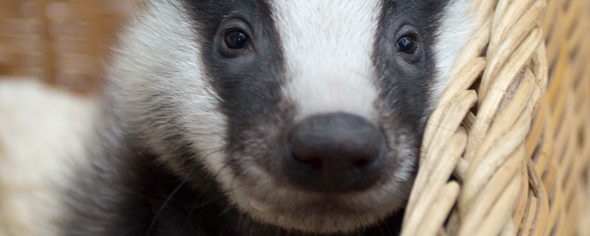DEFRA don’t want to vaccinate badgers, they want to keep killing them, against advice from Natural England.

As the first badgers of summer 2024 are being killed outright by a shot to the heart, or scream and die slowly in pain, a Freedom of Information response released on 31st May has revealed a morass of Government confusion. Communications between Defra and Natural England from April and May of this year show DEFRA contriving to carry on culling. By aligning with the views of its highly controlled ‘BTB Partnership’, and stalling the promised badger vaccination programme, that they have had four years to prepare for.
Dr Peter Brotherton’s (Director of Science at Natural England) advice in April, (see here), a response by Defra in early May (here), and final decision by NE (here) tell the story. NE’s response to the recent policy consultation (here), is also very revealing. Brotherton gives NE’s view on Supplementary Badger Culling (SBC) that are done after 4-years of Intensive culling, is that badger vaccination should be the best option to promote, based upon his view of the available scientific evidence :
“I can find no justification for authorising further supplementary badger culls in 2024 for the purpose of preventing the spread of disease and recommend against doing so.”
However, on 1st May, Sally Randall who is the Director General for Food, Biosecurity and Trade for DEFRA responded saying:
“The experience of the last three years has shown that whatever changes are made to disease control, those most affected by the disease, must have confidence in both the process and the trajectory. Changes need to be carefully timed and communicated, whilst balancing a range of potentially opposing views. Any abrupt changes to policy would seriously undermine our ability to engage constructively with the industry on future disease control interventions.”
The letter included an Annex A. with advice from APHA and the Chief Veterinary Officer, stating that Defra’s view was that SBC should continue until badger vaccination was fully viable, and that would take an unspecified amount of time. DEFRA said it had not gone far enough with preparations and that there was no financial capacity to promote it. They implied that farmers didn’t want it either. Then just two days later on 3rd May, Oliver Harmar, Natural England Chief Operating Officer, responsible for badger cull licensing at Natural England, decided to grant nine new Supplementary Badger Control licences and to authorise seventeen existing SBC licences in 2024, the decision having been passed by Tony Juniper and the NE Board. The licences were issued around mid-May.
But of equal importance, Brotherton made the following remarks:
“As I have said in previous advice, much greater effort is needed to raise awareness of the disease reduction benefits of the alternatives to culling among the farmer community, in my opinion. In this regard, it is disappointing that the recent publication by Birch et al. 2024 has been widely reported as providing evidence that badger culling reduces the incidence of bTB by 56%, when in fact the study shows the overall impact of implementing a range of bTB control measures, not culling alone. Further research to establish the relative disease reduction contributions of the different control measures is needed.”
This of course is the point made problematic by the crude and misleading ‘Abstract’ at the start of the APHA draft report (here) and following on with the published version (here). The recent Defra consultation on introducing so-called ‘targeted culling’ claimed that badger culling was responsible for herd incidence reduction, although it had no evidence of this. Brotherton is therefore disappointed by Steve Barclay, the Secretary of State for Defra and Defra Minister Douglas Miller and previous Defra Ministers. They have all seriously misled the public with badger cull claims and this is now a matter for legal consideration. Reductions in herd breakdowns could all have been down to tighter cattle testing and the accepted published peer reviewed and uncontested science on changes to herd incidence peaking and falling before badger culling was rolled out – and shown at the County level (2013-2019) suggests that this is most likely the case (see Langton, Jones and McGill 2022).
In previous High Court challenges over the future of badger culling, the ruling has been that decisions on culling can also be political decisions. If the future of badger culling is to be based on the science, then we will be seeing an end to culling very soon. Intensive, Supplementary, Low Risk Area, and Targeted culling are mistakes that should, and will be seen as such, and confined to the past.
While the disease benefit of badger vaccination is (like badger culling) not proven, the benefits of tighter cattle testing are well established. It is cattle measures done properly that will deliver the much needed bovine tuberculosis disease control for Britain and Ireland.
On 5 July the new Government must focus on advanced cattle testing, quarantines and lockdowns and consign badger culling to history, where it belongs.
Discover more from The Badger Crowd - standing up for badgers
Subscribe to get the latest posts sent to your email.

